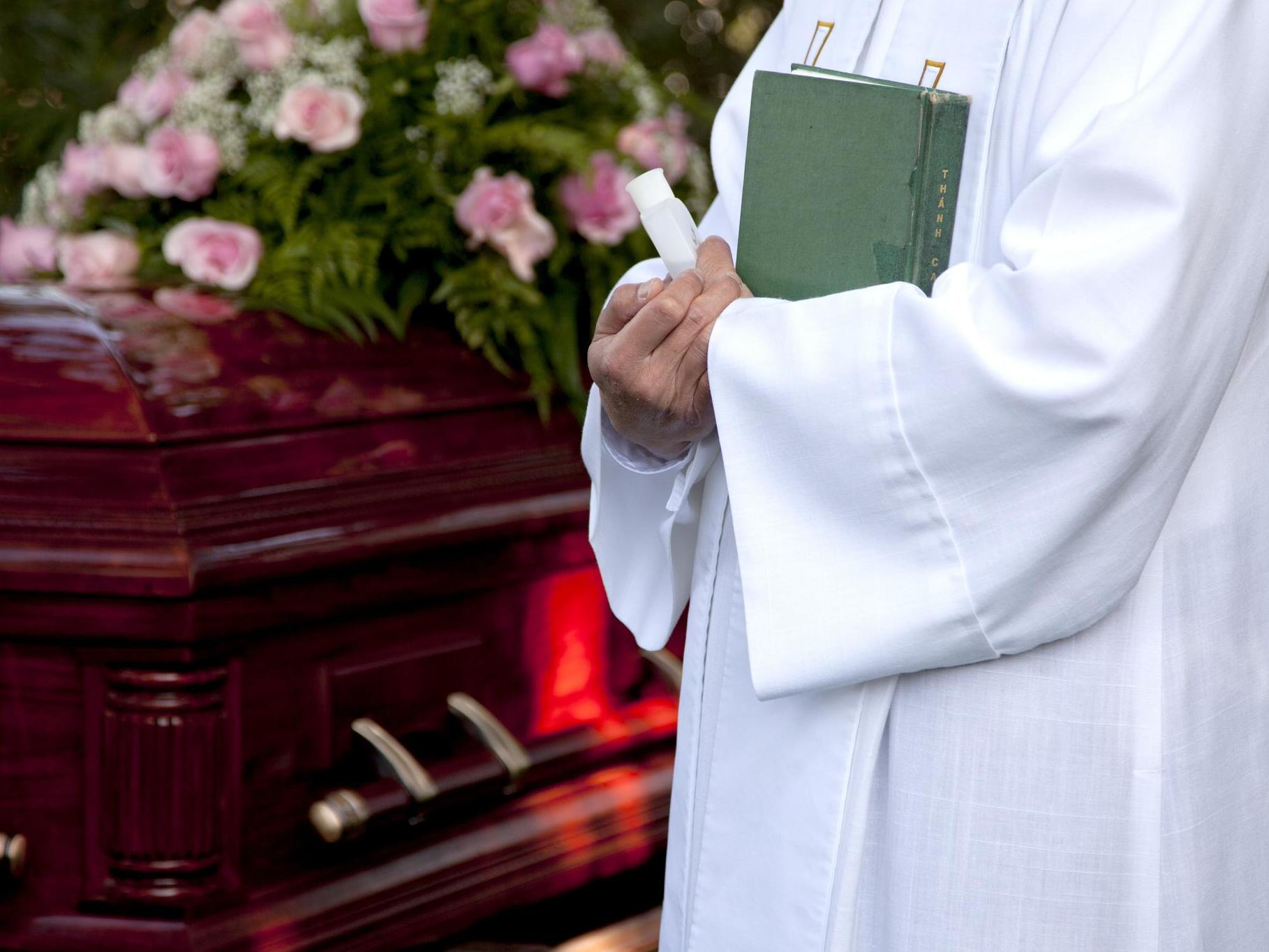Funeral bills soar amid ongoing investigations into death monopoly
Families struggle to cover bills as seasonal death rate hits peak

Crippling funeral bills have risen by almost a quarter in the last five years, forcing more bereaved families into debt to cover the costs, according to a major study.
As the number of recorded deaths in the UK peaks this month, at an average of one every 44 seconds, the related bills could be upwards of £250m, according to SunLife’s latest Cost of Dying report.
The average total bill to arrange a funeral and certain extras such a wake or other send off, including catering, flowers, venue hire and professional fees, now comes in at just under £9,500. The average basic funeral alone takes up more than £4,400 of that total.
Just 37 per cent of people put aside sufficient funds to cover their funeral. That could mean that this month, which, according to the Office for National Statistics, sees 27 per cent more deaths registered than the rest of the year, bereaved family and friends may need to find £155m.
More than one in 10 say paying for a loved one’s funeral causes financial concerns, prompting them to borrow money from others, take out loans and credit cards, and even sell belongings to bridge the funding gap.
In a bid to alleviate the pressure on those already dealing with grief, the Department for Work and Pensions finally announced an increase at the end of last year in the Funeral Expenses Payment benefit to £1,000, which will come in from April 2020.
“While the cost of funerals has risen over the years, the government’s benefit to help with funeral costs has remained at £700 for 16 years,” said Louise Eaton-Terry, a funeral cost specialist at insurance firm Royal London. “Having tirelessly campaigned on this issue, we welcome the news that the Funeral Expenses Payment benefit is set to rise.”
“However, with bereaved families borrowing almost £2,000 to pay for a loved one’s funeral, more needs to be done to tackle funeral poverty. This is only the tip of the iceberg – the government must, at the very least, commit to annual increases of the benefit if it really wants to have an impact.”
But subsidising costs won’t solve the underlying problem of runaway bills.
The funeral industry is currently the subject of a long-term, in-depth investigation by the Competition and Markets Authority (CMA) over serious concerns about the recent price rises that hit consumers at their most vulnerable.
Get a free fractional share worth up to £100.
Capital at risk.
Terms and conditions apply.
ADVERTISEMENT
Get a free fractional share worth up to £100.
Capital at risk.
Terms and conditions apply.
ADVERTISEMENT
Organising a funeral could cost those on the lowest incomes around 40 per cent of their annual outgoings – more than they spend on food, clothing and energy combined.
The cost of the most straightforward funeral – a direct cremation, with no accompanying service – has dropped in price in recent years to an average of just £1,626. But only 4 per cent of people have a direct cremation, according to Sunlife – largely because they don’t know about them.
Cremations account for around three quarters of funerals, yet there are limited choices for most people in their local area and fees charged by crematoria increased by 84 per cent on average in the 10 years to 2018, more than 3 times the rate of inflation.
Those trying to arrange a funeral could save more than £1,000 by considering a range of choices in their local area, the CMA reported when it launched the investigation at the end of 2018.
But they are often distressed and not in a position to do so, “making it easier for some funeral directors to charge higher prices”, the CMA said. It continued: “Prices are also often not available online, making it difficult to compare options.”
While some smaller funeral directors have sought to keep their prices low, others, particularly larger chains, have implemented policies of consistently high year-on-year price increases.
“A number of these have now introduced lower cost funeral options, but this doesn’t go far enough to make up for years of above inflation price hikes,” the regulator reported. “The CMA’s evidence also indicates most people who organise a funeral remain extremely vulnerable to exploitation and future rises in charges.”
The investigation is set to conclude in September this year.
Meanwhile, the Financial Conduct Authority is also working towards regulating pre-paid funeral plans, which have been criticised for failing to cover unexpected extra charges despite being sold as a way of securing a preferred funeral in advance and protecting the policyholder against future price increases.
The government’s Money Advice Service offers free, impartial advice for those who need to arrange a funeral, including how funeral costs break down, how to keep those bills down and what financial help is available.
Join our commenting forum
Join thought-provoking conversations, follow other Independent readers and see their replies
Comments
Bookmark popover
Removed from bookmarks